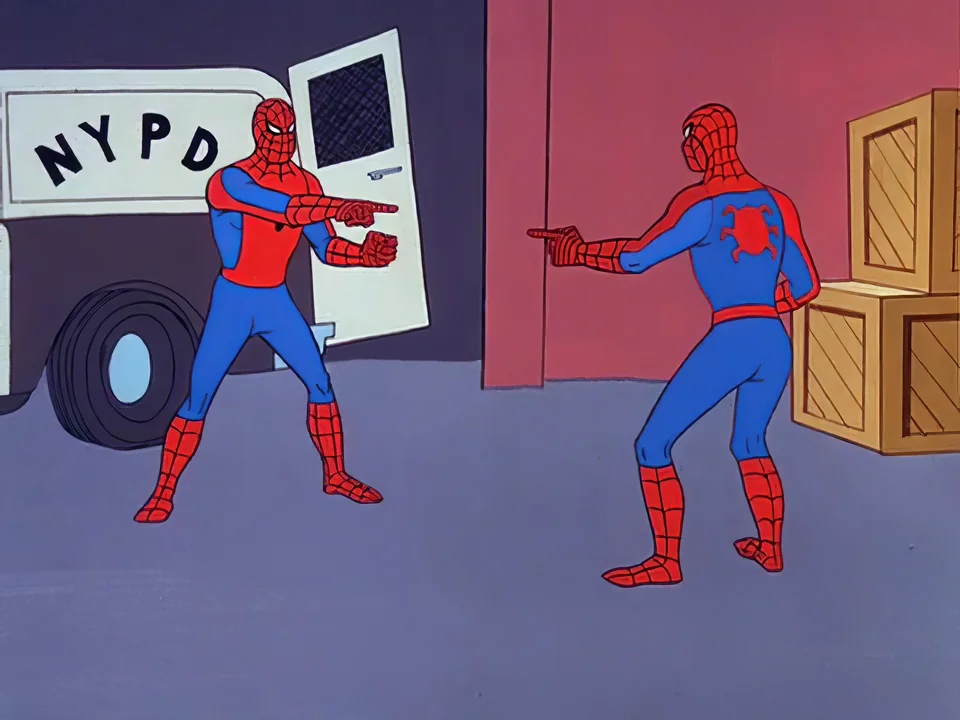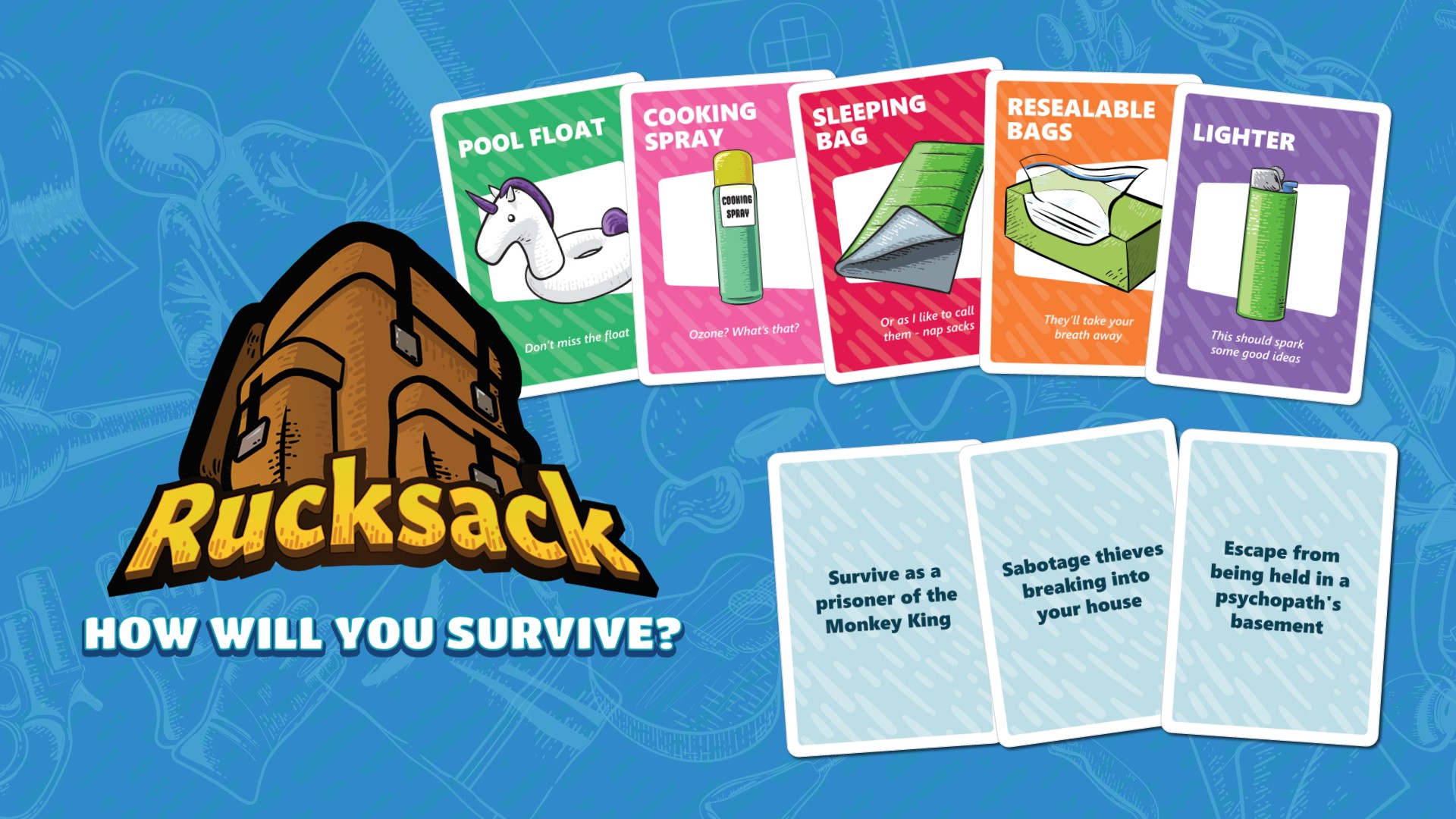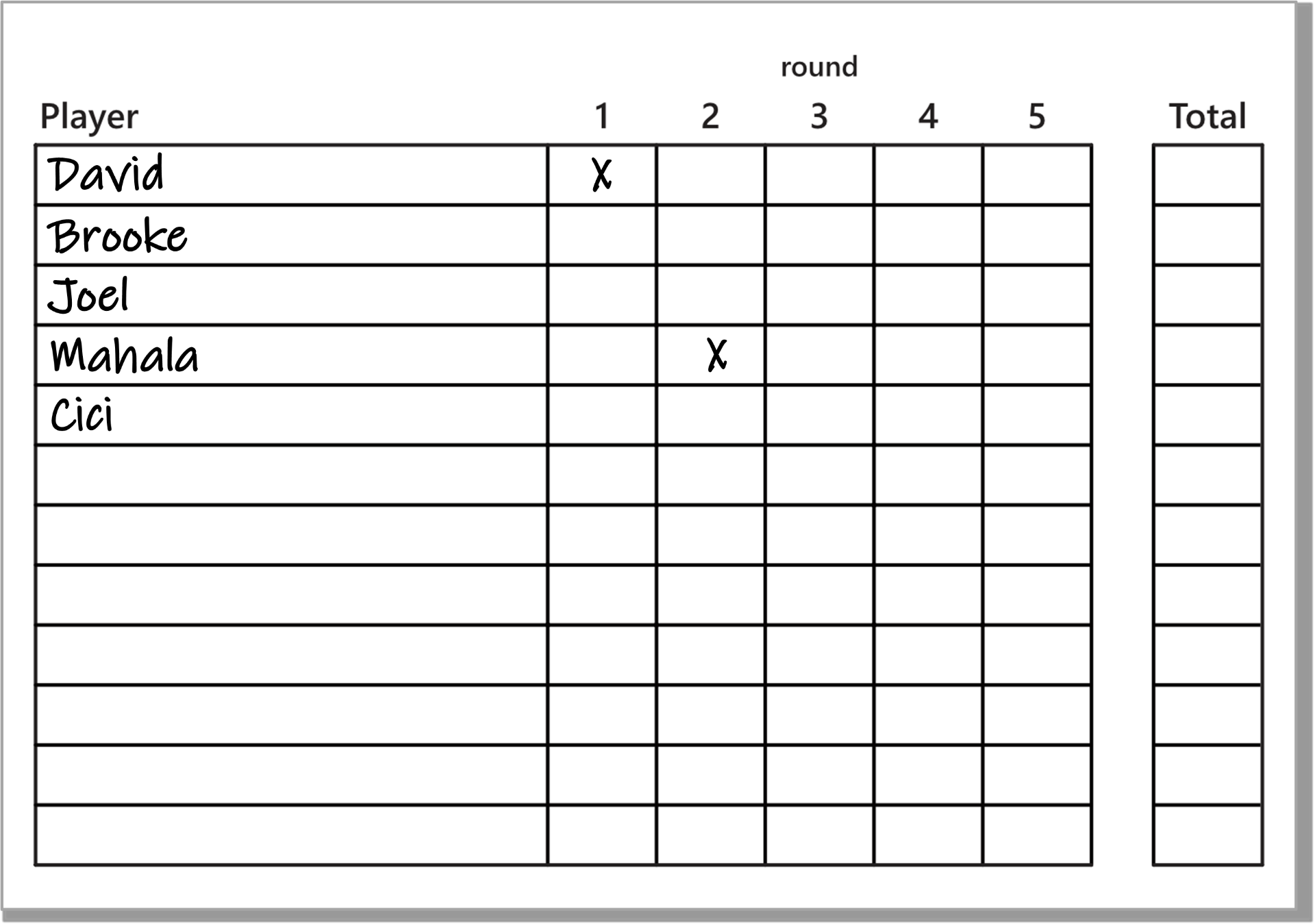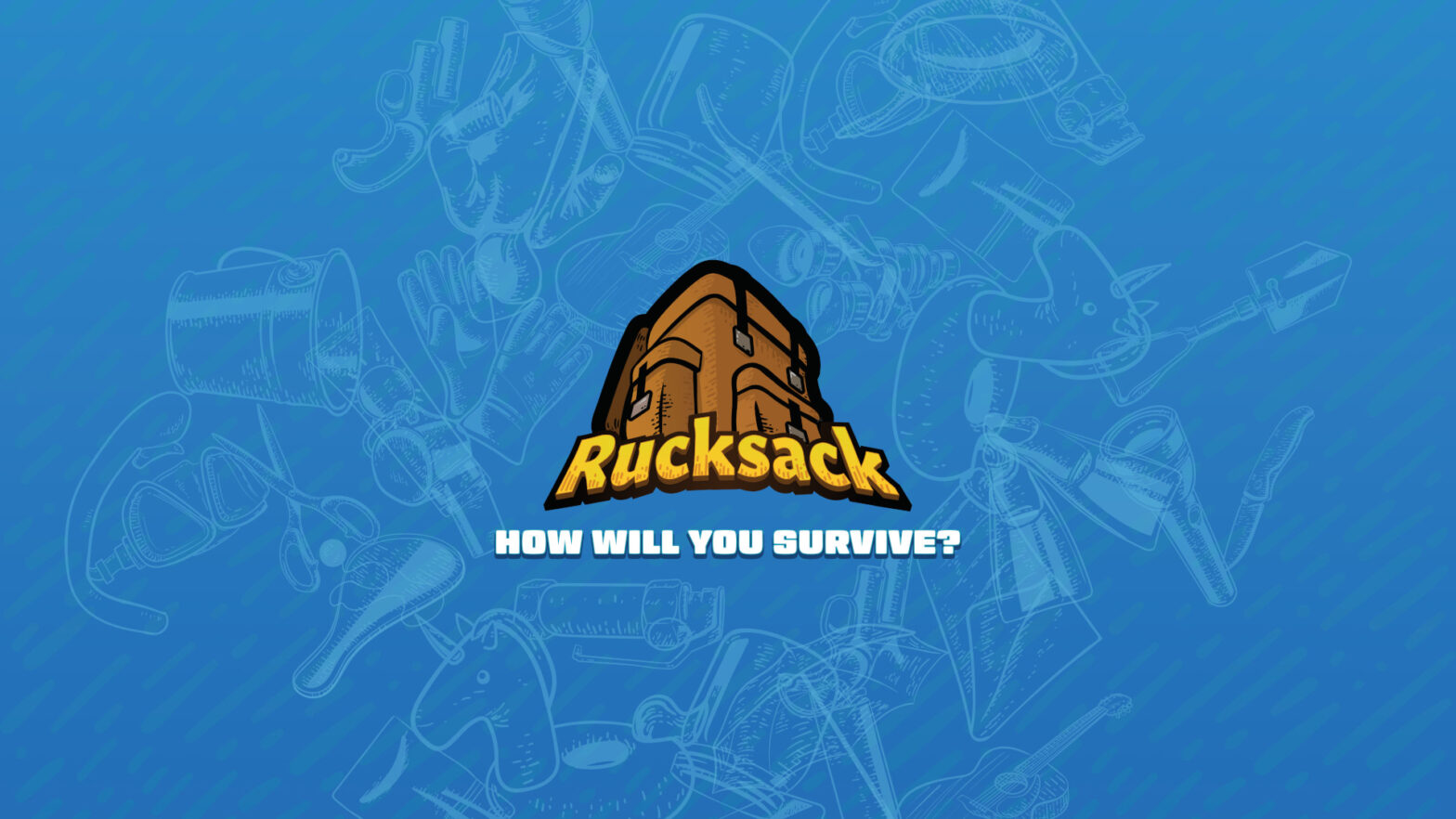Introduction
Have you ever come across a game that – on the surface – looked identical to yours?
As you might imagine, our anxiety jumped a little the first time that happened to us. The last thing we want to do is make a heartless rip off of a game that’s already out there! Thankfully, though, after reading about that game a little more, we realized just how different it really was from Rucksack.
Since then, we’ve come across a few more games that are similar to ours in some way or another. But as we’ve seen more of them, we’ve picked up on a pattern of what really makes Rucksack unique. So I thought I’d write a little bit about what I believe makes it stand out from the crowd.

What is Rucksack?
Rucksack is a lighthearted party game that throws each player into the most extreme scenarios you can think of. But don’t worry, you get to collect 5 (maybe not so useful) items to help you survive. It’s up to you to figure out how to use them and convince the other players that you’d make it out alive!

What Makes It Different?
It’s not “Know Thy Judge”
A common pitfall of many party games is that each round has a judge who chooses the winner of the round.
Why is that a problem? Well, because then the game stops being about choosing the cards/combinations that are legitimately the best, and instead becomes about choosing cards you think the judge will most likely pick. What that means is, if you have a judge that’s completely irrational (like one that thinks it’s funny to pick a winner randomly), then the game can really lose its appeal, as the choices you make don’t really influence the outcome.
In Rucksack, there is no single judge per turn. Each round, everyone gets to create a plan and everyone votes for their favorite. That means you have to convince as many people as possible that yours is the best scenario, which makes it much more likely that the winner does, indeed, have the best answer.
Answers Aren’t Hidden
Another downfall of similar games is that the single judge for the turn doesn’t know who gave what answer.
Now, that makes sense to mitigate bias, but if the judge doesn’t know which answer is yours, then it’s hard to argue your case without revealing that it was your answer. What you end up with is the judge reading the choices while the others sit quietly, hoping their answer is picked. Snooze fest.
With Rucksack, everyone knows everyone else’s answers, so it constantly encourages friendly banter as you try convincing each other that “so and so’s” plan is pitiful, while yours is undeniable genius!
Votes ARE Hidden

I can hear you thinking now, “If you know everyone’s answer, then everyone will just vote for whoever’s losing, to give themselves a better chance.”
You might be right, if everyone voted openly, but in Rucksack, votes are hidden. Every player is given a voting sheet where they secretly record their vote for the winner. Since no one knows who voted for who, it’s much tougher to just vote for the person with the lowest points.
On top of that, votes are tallied at the end of the game, so you don’t have players that win individual rounds. Instead, you play 3 rounds, and then count who got the most votes of all rounds combined. This helps to further obscure winners and losers until the end of the game.
It’s Not Shock-Value Humor
Rucksack doesn’t really have any low-effort cards that will “get a bajillion laughs no matter when I play it!” Other games that have those can be fun, for sure, but I’m sympathetic to those that say they get old too quickly.
Don’t get me wrong, there are plenty of comical scenarios, and some of the items are a bit ridiculous, but you won’t feel like it’s fill-in-the-blank humor. In fact, you don’t even have to go the humor route at all. There have been a few times where I couldn’t think of anything particularly funny about the cards I had in my hand, so I decided to go the more serious/detailed route, and gained several votes for doing so. Laughs are great, and easy to come by with Rucksack, but it’s not completely dependent on them.
The Game Doesn’t Play You
Some games depend entirely on what cards you have in your hand, and there’s nothing you can do about it. It’s completely luck of the draw. It ends up making you feel like you’re not even playing the game, and more like the game is playing you.
Rucksack, however, actually has real card drawing! There’s still randomness involved, sure, but you have the choice to pick from the discard pile, or if you don’t like the card you draw, you have a chance to trade it for a better card if you’re willing to risk it.
On top of that, there really is no perfect hand, because it heavily favors real creativity. Having cards that are “perfect” means you’ve got it too easy, and the other players may not vote for your plan. To win votes in that situation, you’ll have to come up with out-of-the-ordinary solutions, instead of just “oh, I have a gun, so I shoot the bad guy”.
Conclusion
Hopefully now you’ve got a better idea of what makes Rucksack such a great game. If you’d like a little more info, take a look at Rucksack’s dedicated page!

Leave a Reply